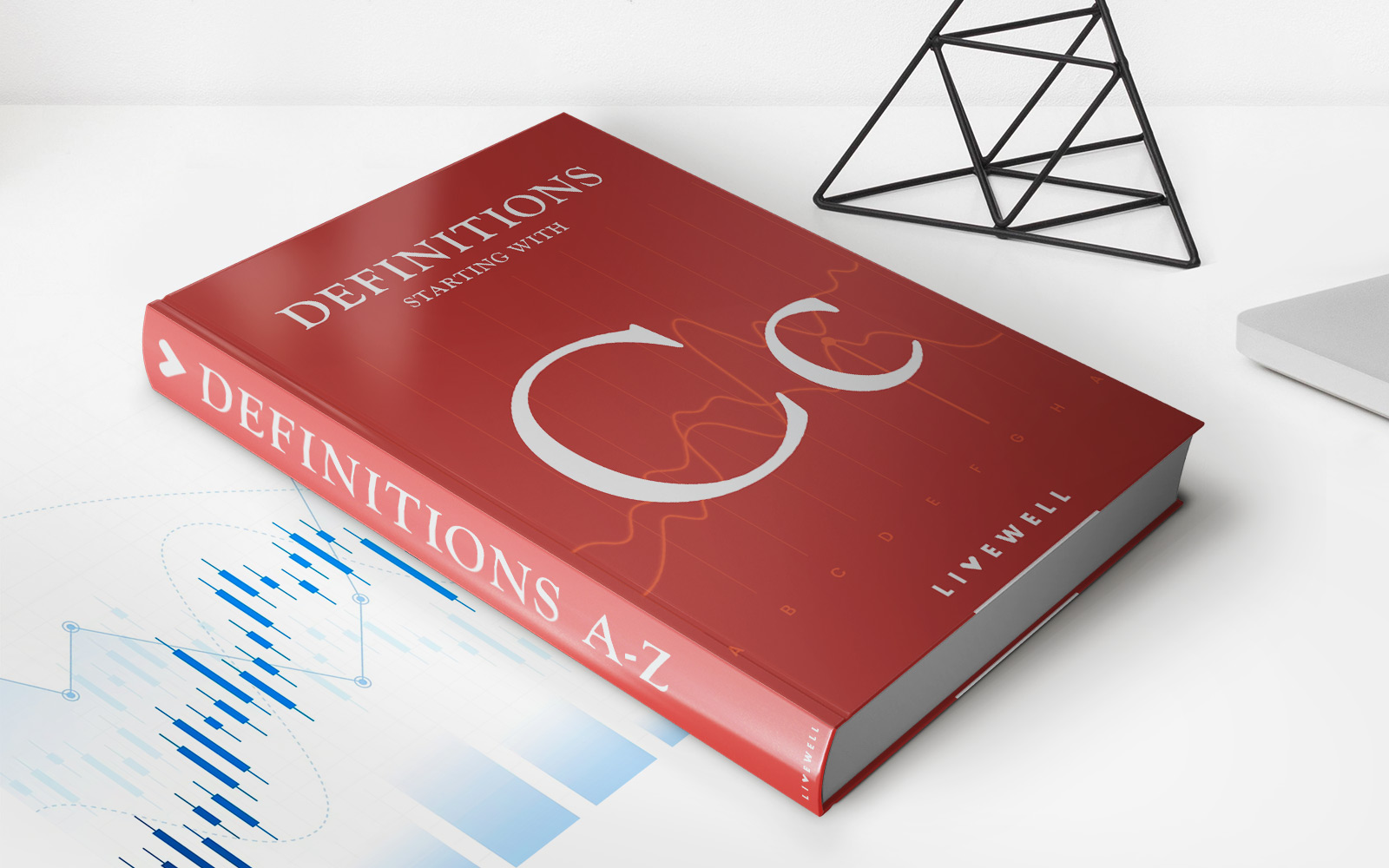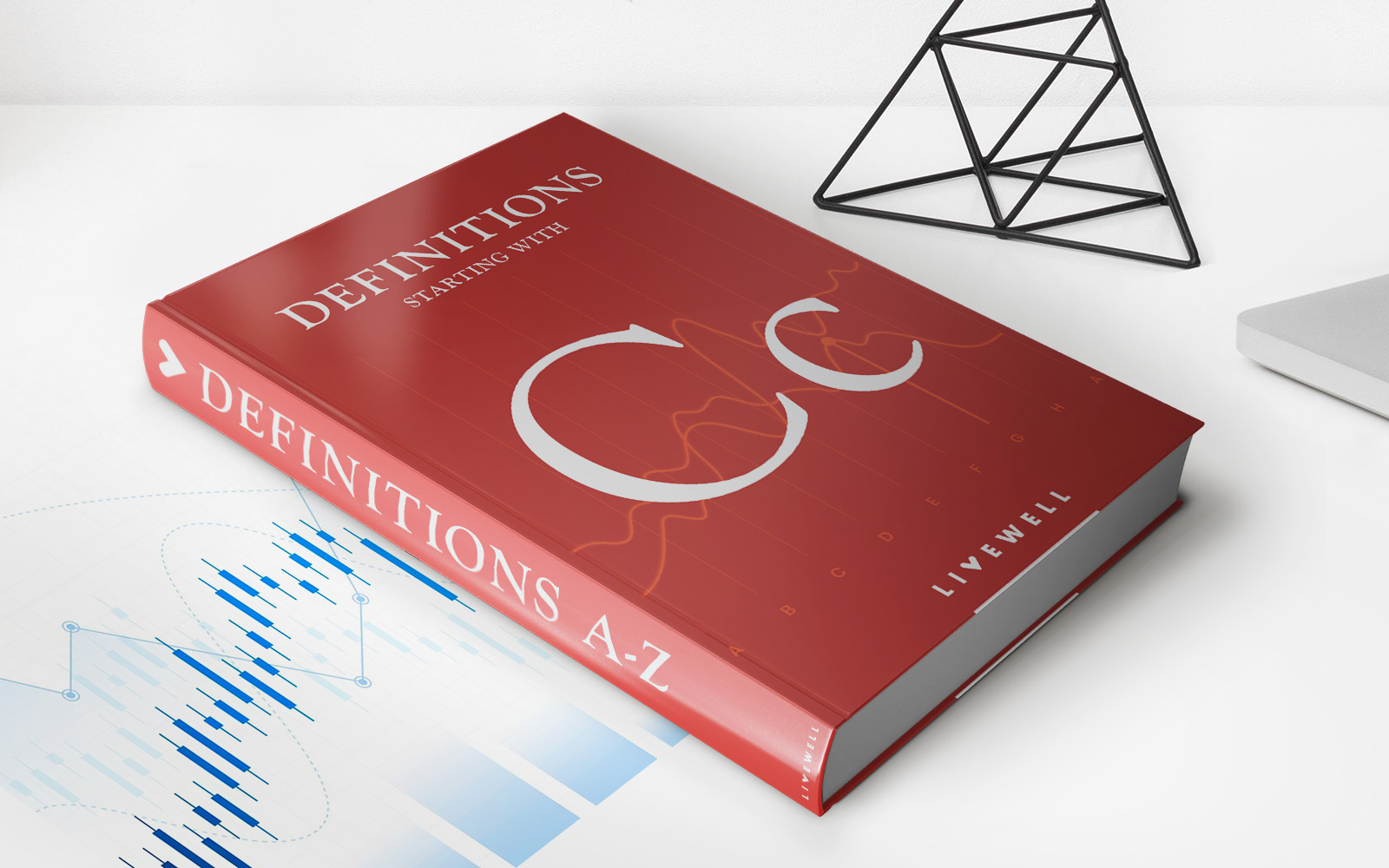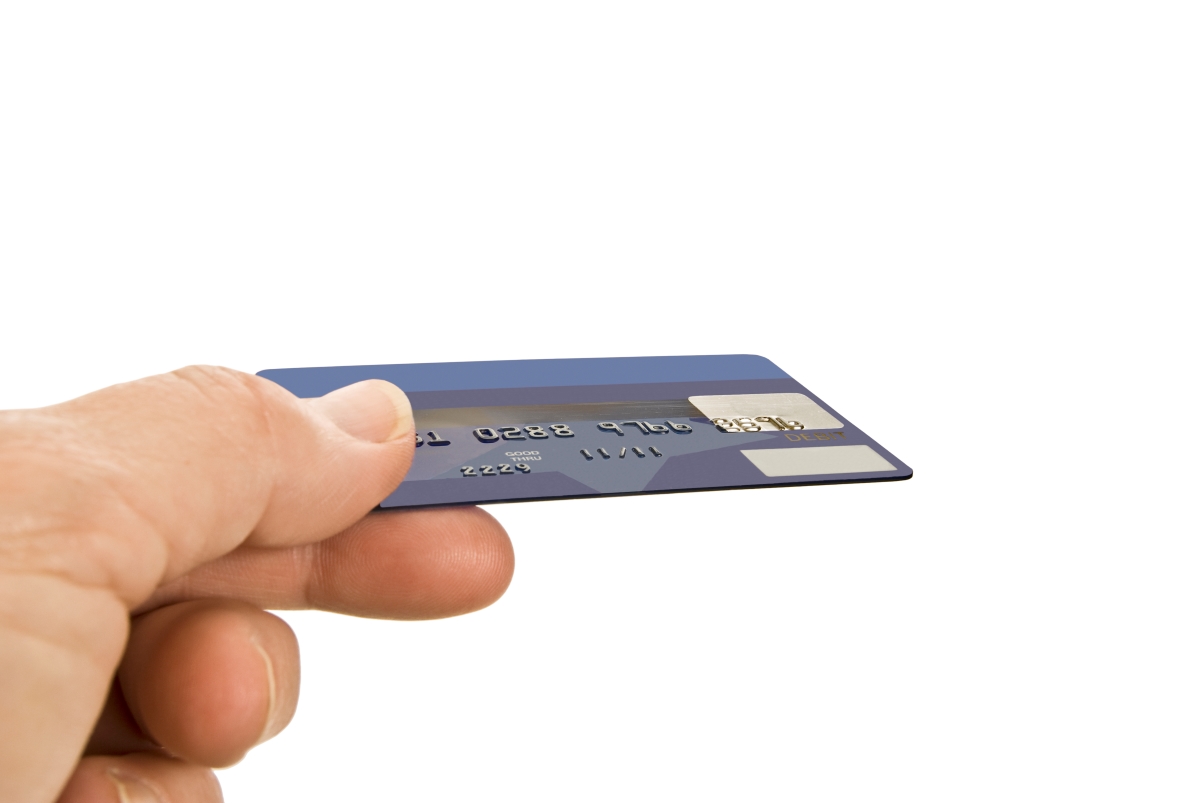

Finance
How To Boost Credit Score While In Chapter 13
Published: October 22, 2023
Learn how to boost your credit score while in Chapter 13 bankruptcy with these helpful finance tips. Improve your financial standing and move towards a brighter future.
(Many of the links in this article redirect to a specific reviewed product. Your purchase of these products through affiliate links helps to generate commission for LiveWell, at no extra cost. Learn more)
Table of Contents
- Introduction
- Understanding Chapter 13 Bankruptcy
- Importance of a Good Credit Score
- Factors Affecting Credit Score During Chapter 13
- Steps to Boost Credit Score While In Chapter 13
- Make Timely Payments to Your Chapter 13 Trustee
- Prioritize Current Credit Accounts
- Maintain Low Credit Utilization
- Dispute Inaccurate Information on Credit Reports
- Seek Professional Credit Counseling
- Avoid Applying for New Credit
- Monitor Your Credit Score Regularly
- Conclusion
Introduction
Chapter 13 bankruptcy can provide individuals with a structured plan to repay their debts over a period of time, typically three to five years. While in Chapter 13, it’s important to remember that your credit score will be affected, as bankruptcy is a significant financial event. However, this doesn’t mean that your credit score is doomed forever. With the right strategies and diligent effort, you can work towards improving your credit score even while in Chapter 13.
Having a good credit score is crucial for various reasons. It not only impacts your ability to secure loans and credit cards but also affects the interest rates you may qualify for. A higher credit score can not only save you money on interest but also improve your chances of getting approved for housing, employment, and other opportunities.
In this article, we will explore some effective strategies to boost your credit score while in Chapter 13. By following these steps, you can work towards improving your financial standing and rebuilding your creditworthiness.
Understanding Chapter 13 Bankruptcy
Chapter 13 bankruptcy is a type of bankruptcy that allows individuals with a regular income to create a repayment plan to pay off their debts over a period of time. Unlike Chapter 7 bankruptcy, which involves liquidating assets to repay creditors, Chapter 13 focuses on reorganizing debts and establishing a manageable payment plan.
When you file for Chapter 13 bankruptcy, you will work with a court-appointed trustee to create a repayment plan based on your income and expenses. This plan typically lasts three to five years, during which you make monthly payments to the trustee, who then distributes the funds to your creditors. The goal of Chapter 13 bankruptcy is to provide individuals with a fresh start while still ensuring that creditors receive a portion of what they are owed.
One of the advantages of Chapter 13 bankruptcy is that it allows you to keep your assets, such as your home or car, as long as you continue making payments according to the approved plan. This can be beneficial for individuals who want to protect their valuable assets while still working towards debt repayment.
It’s important to note that Chapter 13 bankruptcy will have a negative impact on your credit score. It will be reflected on your credit report for up to seven years, making it harder to obtain new credit in the near future. However, with responsible financial management and the right strategies, you can begin to rebuild your credit score even while in Chapter 13.
Importance of a Good Credit Score
A good credit score plays a crucial role in your financial life. It is a numerical representation of your creditworthiness and is used by lenders, landlords, and even potential employers to assess your financial reliability. Here are a few reasons why having a good credit score is important:
- Access to Better Loan Terms: A higher credit score makes you more eligible for loans and credit cards with favorable terms and lower interest rates. This means you can save thousands of dollars over the life of a loan.
- Improved Housing Opportunities: Landlords often check credit scores when selecting tenants. A good credit score can give you an edge, increasing your chances of securing that apartment or rental property you have your eye on.
- Easier Approval for Utilities: Utility companies may require a credit check before connecting services such as electricity, water, or cable. A good credit score can make the approval process smooth without requiring a hefty deposit.
- Enhanced Job Prospects: Some employers review credit reports to evaluate a candidate’s financial responsibility and trustworthiness. A positive credit history can potentially impact your chances of landing a job or advancing in your career.
- Greater Financial Security: A good credit score provides a sense of financial stability and security. It allows you to have more borrowing options during emergencies and unexpected financial situations.
It’s important to understand that rebuilding your credit score while in Chapter 13 bankruptcy may not happen overnight. However, by taking proactive steps and practicing responsible financial habits, you can gradually improve your creditworthiness and enjoy the benefits of a good credit score in the long run.
Factors Affecting Credit Score During Chapter 13
While in Chapter 13 bankruptcy, there are several factors that can impact your credit score. It’s important to understand these factors to effectively manage and improve your credit during this time. Here are some key considerations:
- Payment History: Your payment history has the greatest impact on your credit score. Making timely payments to your Chapter 13 trustee and maintaining consistent payments to your creditors will demonstrate your commitment to repaying your debts, positively impacting your credit score.
- Debt-to-Income Ratio: Your debt-to-income ratio is the percentage of your income that goes towards debt. Keeping your debt-to-income ratio low by making regular payments on your repayment plan can help improve your credit score over time.
- Credit Utilization: While in Chapter 13, it’s important to manage your existing credit accounts responsibly. Maintaining low credit utilization, which is the percentage of your available credit that is being used, can result in a positive impact on your credit score. Aim to keep your credit utilization below 30%.
- Length of Credit History: The length of your credit history is an important factor in determining your credit score. While Chapter 13 bankruptcy will remain on your credit report for several years, continuing to make on-time payments during the repayment period can help establish a positive credit history within the bankruptcy framework.
- Public Records: The fact that you are in Chapter 13 bankruptcy will be listed as a public record on your credit report. This can negatively impact your credit score but will also show potential lenders that you are taking steps to responsibly manage your debts.
It’s important to keep in mind that rebuilding your credit score during Chapter 13 requires patience and persistence. By focusing on these factors and making efforts to improve them, you can gradually rebuild your creditworthiness and work towards achieving a better credit score.
Steps to Boost Credit Score While In Chapter 13
Boosting your credit score while in Chapter 13 bankruptcy may seem challenging, but with consistent effort and the right strategies, it is possible. Here are some steps you can take to improve your credit score during this time:
- Make Timely Payments to Your Chapter 13 Trustee: Paying your monthly agreed-upon amount to your trustee on time is crucial. This demonstrates your commitment to repaying your debts and can positively impact your credit score.
- Prioritize Current Credit Accounts: If you have any credit accounts that are not included in your Chapter 13 plan, such as a car loan or a mortgage, make sure to prioritize making timely payments on these. Positive payment history on these accounts can help boost your credit score.
- Maintain Low Credit Utilization: Keep your credit card balances low to help lower your credit utilization ratio. Aim to use no more than 30% of your available credit. This shows responsible credit management and can improve your credit score over time.
- Dispute Inaccurate Information on Credit Reports: Regularly review your credit reports for any errors or inaccuracies. Dispute any incorrect information to ensure that your credit score is based on accurate data.
- Seek Professional Credit Counseling: Consider working with a reputable credit counseling agency that specializes in helping individuals in bankruptcy. They can provide guidance on managing your finances, developing a budget, and rebuilding your credit.
- Avoid Applying for New Credit: While in Chapter 13, it is generally best to avoid taking on new credit, as it can increase your debt load and potentially harm your credit score. Focus on repaying your current debts instead.
- Monitor Your Credit Score Regularly: Keep track of your credit score and credit reports regularly. This allows you to stay aware of any changes and take action to address any issues that may arise.
Remember, rebuilding your credit score takes time and discipline. Stay committed to your Chapter 13 plan, follow these steps, and over time, your efforts will pay off as you see improvements in your credit score.
Make Timely Payments to Your Chapter 13 Trustee
One of the most important steps to boost your credit score while in Chapter 13 bankruptcy is to make timely payments to your Chapter 13 trustee. Your trustee is responsible for distributing your payments to your creditors according to the approved repayment plan.
Here’s how making these payments on time can positively impact your credit score:
- Builds a Positive Payment History: Consistently making on-time payments to your trustee demonstrates your financial responsibility and commitment to repaying your debts. This creates a positive payment history, which is a significant factor in determining your credit score.
- Reduces Outstanding Debt: Each payment made to your trustee reduces the outstanding debt owed to your creditors. As your debt decreases over time, your credit utilization ratio improves, which is another key factor in calculating your credit score.
- Shows Financial Stability: Making timely payments to your trustee shows stability in your financial management. Lenders and creditors view this as a positive indicator and may be more willing to extend credit or offer better terms in the future.
- Demonstrates Responsibility: Honoring your financial obligations by making timely payments demonstrates responsibility and a willingness to fulfill your repayment obligations. This can help rebuild trust with lenders and creditors.
To ensure that you make timely payments to your Chapter 13 trustee, it’s important to budget and prioritize these payments. Create a financial plan that takes into account your monthly income and expenses, allocating sufficient funds to cover your trustee payments. Set up reminders or automatic payments to help you stay on track.
If you encounter financial difficulties and are unable to make a payment, it’s crucial to communicate with your trustee as early as possible. They may be able to work with you to make alternative arrangements or modify your payment plan to help you stay on track.
By consistently making timely payments to your Chapter 13 trustee, you can actively contribute to rebuilding your credit score and moving towards a healthier financial future.
Prioritize Current Credit Accounts
While in Chapter 13 bankruptcy, it’s important to prioritize making timely payments on any current credit accounts that are not included in your repayment plan. These may include car loans, mortgages, or other debts that you are still responsible for repaying outside of the bankruptcy process.
Here’s why prioritizing these current credit accounts can have a positive impact on your credit score:
- Maintains Positive Payment History: Making regular, on-time payments on your current credit accounts demonstrates your ability to manage your debts responsibly. This helps to build a positive payment history, which is a key factor in calculating your credit score.
- Reduces Overall Debt: Paying down your current credit accounts helps to reduce your overall debt load. As your debts decrease, your credit utilization ratio improves, which can positively impact your credit score.
- Preserves a Mix of Credit: Maintaining a mix of credit accounts, such as a mortgage, car loan, and credit cards, can also have a positive effect on your credit score. It shows that you can successfully manage different types of credit, adding to your creditworthiness.
- Strengthens Your Relationship with Lenders: By prioritizing your current credit accounts, you are demonstrating your commitment to fulfilling your financial obligations. This can help strengthen your relationship with lenders and may make them more willing to extend credit or offer better terms in the future.
To prioritize these current credit accounts effectively, it’s advisable to review your budget and allocate sufficient funds to cover these payments each month. Creating a budget allows you to prioritize your expenses and ensure that you have enough to make timely payments on these obligations.
If you’re faced with financial difficulties and are unable to make a payment on a current credit account, it’s important to communicate with the lender as soon as possible. Explain your situation and explore possible options, such as modifying the payment terms or seeking temporary relief until you are in a better financial position.
Remember, by prioritizing your current credit accounts and consistently making on-time payments, you can actively work towards improving your credit score and demonstrating your financial responsibility.
Maintain Low Credit Utilization
During Chapter 13 bankruptcy, it’s important to strive for and maintain low credit utilization. Credit utilization refers to the percentage of your available credit that you are currently using. Keeping your credit utilization low can have a positive impact on your credit score.
Here’s why maintaining low credit utilization is essential:
- Improves Credit Score: Your credit utilization ratio is a significant factor in calculating your credit score. Keeping your credit utilization below 30% demonstrates responsible credit management and can positively impact your credit score.
- Shows Financial Stability: Maintaining low credit utilization reflects financial stability and control. It shows potential lenders and creditors that you have the ability to manage your credit responsibly, which can be beneficial when seeking future credit.
- Reduces Debt Burden: By keeping your credit utilization low, you are ensuring that you are not accumulating excessive debt. It allows you to manage your finances more effectively and reduces the burden of debt repayment during and after Chapter 13 bankruptcy.
- Creates Positive Habits: By consciously keeping your credit utilization low, you are cultivating healthy financial habits. These habits can translate into improved financial management even after your bankruptcy is completed.
To maintain low credit utilization, it’s important to monitor your credit card balances and keep them as low as possible. Consider these steps to help manage your credit utilization:
- Pay off credit card balances in full each month, if possible.
- Keep track of your credit card spending and avoid maxing out your credit cards.
- Consider making multiple smaller payments throughout the month to keep your balances low.
- Avoid opening new credit cards or increasing credit limits unnecessarily.
By staying mindful of your credit card usage and working towards low credit utilization, you can actively contribute to improving your credit score and overall financial well-being during and after Chapter 13 bankruptcy.
Dispute Inaccurate Information on Credit Reports
One crucial step in boosting your credit score while in Chapter 13 bankruptcy is to regularly review your credit reports and dispute any inaccurate information. Errors on your credit reports can negatively impact your credit score, so it’s important to proactively address them.
Here’s why disputing inaccurate information is vital:
- Ensures Accuracy in Credit Reporting: Credit reports may contain errors such as incorrect account balances, late payment notations, or accounts that don’t belong to you. Disputing these inaccuracies helps ensure that your credit reports reflect accurate and factual information.
- Prevents Negative Impact on Credit Score: Inaccurate negative information can drag down your credit score. By disputing and rectifying any errors, you can prevent these inaccuracies from impacting your creditworthiness and help improve your credit score.
- Maintains Credibility with Lenders: Having accurate credit reports helps maintain your credibility with lenders. When applying for new credit in the future, having clean and accurate reports demonstrates your financial responsibility and increases your chances of approval or favorable terms.
- Identifies Identity Theft or Fraud: Monitoring your credit reports allows you to detect any signs of identity theft or fraudulent activity. By promptly disputing and resolving any unauthorized accounts or transactions, you can prevent further damage to your credit and financial well-being.
To dispute inaccurate information on your credit reports, follow these steps:
- Obtain a copy of your credit reports from all three major credit bureaus – Experian, Equifax, and TransUnion.
- Carefully review each report for any errors, inconsistencies, or unauthorized accounts.
- Document the inaccurate information with supporting evidence, such as payment records or correspondence.
- Submit a dispute online or by mail directly to the credit bureau(s) reporting the inaccurate information.
- Include any relevant supporting documents and clearly explain the nature of the dispute.
- Monitor the resolution of the dispute and follow up if necessary.
By being proactive in reviewing and disputing inaccurate information on your credit reports, you can help ensure the accuracy of your credit history and work towards improving your credit score during and after Chapter 13 bankruptcy.
Seek Professional Credit Counseling
Seeking professional credit counseling can be highly beneficial when working towards boosting your credit score while in Chapter 13 bankruptcy. Credit counselors are experts in financial management and can provide guidance and support throughout the process.
Here’s why professional credit counseling is valuable:
- Expertise in Bankruptcy Regulations: Credit counselors specialized in bankruptcy are well-versed in the intricacies of Chapter 13 and can provide valuable insights and advice specific to your situation.
- Develop a Personalized Budget: A credit counselor can help you create a realistic budget that takes into account your income, expenses, and debt repayment obligations. They can provide guidance on allocating funds effectively to maximize debt repayment and boost your credit score.
- Financial Education and Resources: Credit counselors offer educational resources, workshops, and tools to help you understand credit, budgeting, and responsible financial management. These resources empower you to make informed decisions and develop lifelong financial skills.
- Debt Management Strategies: Credit counselors can assist in developing a debt management plan that aligns with your Chapter 13 repayment plan. They can negotiate with creditors on your behalf and help consolidate or restructure your debts to facilitate repayment and improve your credit score.
- Monitoring and Support: Credit counselors can monitor your progress, provide ongoing support, and help you stay accountable to your financial goals. They can offer guidance during challenging times and help you navigate any financial hurdles that may arise.
When seeking professional credit counseling, it’s essential to choose a reputable organization or counselor with extensive experience in bankruptcy and debt management. Look for agencies accredited by recognized bodies such as the National Foundation for Credit Counseling (NFCC) or the Financial Counseling Association of America (FCAA).
By working with a qualified credit counselor, you can benefit from their expertise and guidance to optimize your financial management, make informed decisions, and ultimately improve your credit score while in Chapter 13 bankruptcy.
Avoid Applying for New Credit
While in Chapter 13 bankruptcy, it’s generally advisable to avoid applying for new credit. Taking on additional debt during this time can complicate your financial situation and potentially hinder your progress towards rebuilding your credit score.
Here’s why it’s important to avoid applying for new credit while in Chapter 13:
- Impact on Credit Inquiries: When you apply for new credit, it results in a hard inquiry on your credit report. Multiple hard inquiries within a short period can negatively impact your credit score, signaling to lenders that you may be taking on excessive debt.
- Added Debt Burden: Taking on new credit means adding to your financial responsibilities. It may increase your debt load and potentially strain your ability to make timely payments on your existing obligations, including your Chapter 13 repayment plan.
- Higher Interest Rates: If you are approved for new credit while in Chapter 13, it is likely that you will be offered less favorable terms and higher interest rates. This can result in additional financial strain and may make it more challenging to manage your overall debt effectively.
- Focus on Existing Debts: Your primary focus during Chapter 13 should be on repaying your existing debts according to your agreed-upon plan. By avoiding new credit, you can better allocate your resources towards fulfilling these obligations and improving your creditworthiness.
If you do find yourself in a situation where you need to apply for new credit, such as for a car loan or a mortgage, it’s important to consult with your bankruptcy attorney or credit counselor. They can provide guidance on when and how to proceed, ensuring that you make informed decisions that align with your financial goals.
Remember, the goal during Chapter 13 bankruptcy is to successfully complete your repayment plan and gradually rebuild your credit. By avoiding new credit and focusing on managing your existing debts responsibly, you can work towards achieving a healthier financial future.
Monitor Your Credit Score Regularly
Monitoring your credit score regularly is essential when working towards improving your credit while in Chapter 13 bankruptcy. By staying informed about changes in your credit score, you can track your progress, identify areas for improvement, and address any potential issues early on.
Here’s why monitoring your credit score is crucial:
- Track Improvement: Regularly checking your credit score allows you to monitor any positive changes or improvements over time. It provides a sense of accomplishment and motivates you to continue practicing good financial habits.
- Detect Errors or Inaccuracies: Monitoring your credit score helps you identify any errors or inaccuracies that may be negatively impacting your score. If you find any discrepancies, you can take immediate action to dispute and correct them.
- Identify Potential Identity Theft: Monitoring your credit score enables you to detect any signs of identity theft, such as unfamiliar accounts or suspicious activity. Promptly addressing identity theft can help minimize the damage and protect your financial well-being.
- Stay Informed about Credit Activity: By regularly checking your credit score, you can stay informed about changes in your credit reports and any new accounts or late payment notations. This allows you to address any issues and take proactive steps to improve your credit.
- Prepare for Future Credit-Related Decisions: Monitoring your credit score provides valuable insights when planning for future credit needs, such as applying for a new loan or credit card. It helps you understand your current creditworthiness and guides your financial decisions.
To monitor your credit score, you can access free credit reports from each of the major credit reporting bureaus once a year at AnnualCreditReport.com. Additionally, many online services offer free credit score monitoring that provides regular updates on your credit score and alerts you to any significant changes.
Remember to review your credit reports thoroughly, checking for errors or inaccuracies. If you notice any discrepancies, promptly dispute them with the relevant credit bureau(s) to ensure that your credit score accurately reflects your creditworthiness.
By regularly monitoring your credit score, you can stay proactive in your credit management efforts, address any concerns promptly, and work towards achieving an improved credit score during and after Chapter 13 bankruptcy.
Conclusion
Boosting your credit score while in Chapter 13 bankruptcy may seem challenging, but with the right strategies and consistent effort, it is indeed possible. By following the steps outlined in this article, you can actively work towards improving your creditworthiness and rebuilding your credit score.
Throughout the process, it’s important to remember that rebuilding your credit takes time and patience. While in Chapter 13 bankruptcy, making timely payments to your trustee, prioritizing current credit accounts, maintaining low credit utilization, disputing inaccuracies on your credit reports, seeking professional credit counseling, avoiding new credit, and monitoring your credit score regularly are all crucial steps in your journey towards a healthier financial future.
It’s important to stay committed to your repayment plan, manage your finances responsibly, and remain consistent in your efforts. By doing so, you can rebuild your credit score, establish positive financial habits, and pave the way for better credit opportunities in the future.
Remember, reaching out to a bankruptcy attorney or credit counselor can provide invaluable assistance and guidance tailored to your specific circumstances. They can help navigate the complexities of Chapter 13 and provide personalized advice for improving your credit while in bankruptcy.
Although the process may require time and perseverance, by implementing these strategies and building a solid financial foundation, you can emerge from Chapter 13 with a better credit score and a brighter financial outlook.














